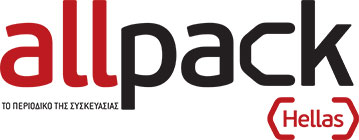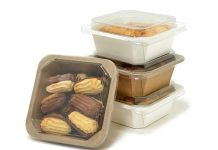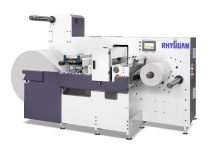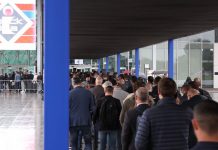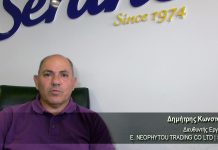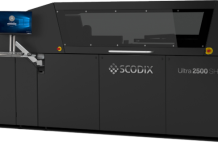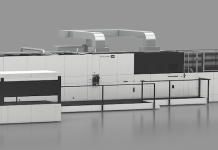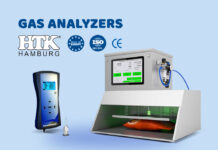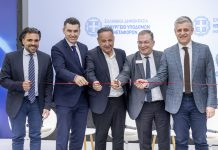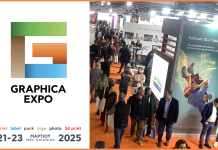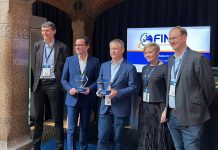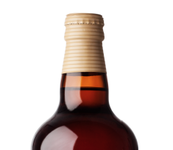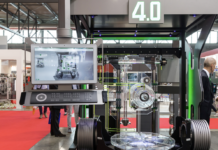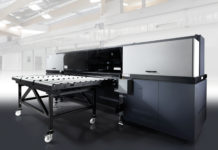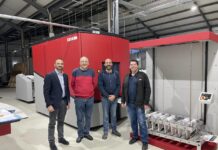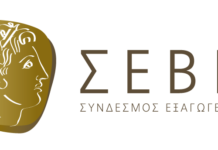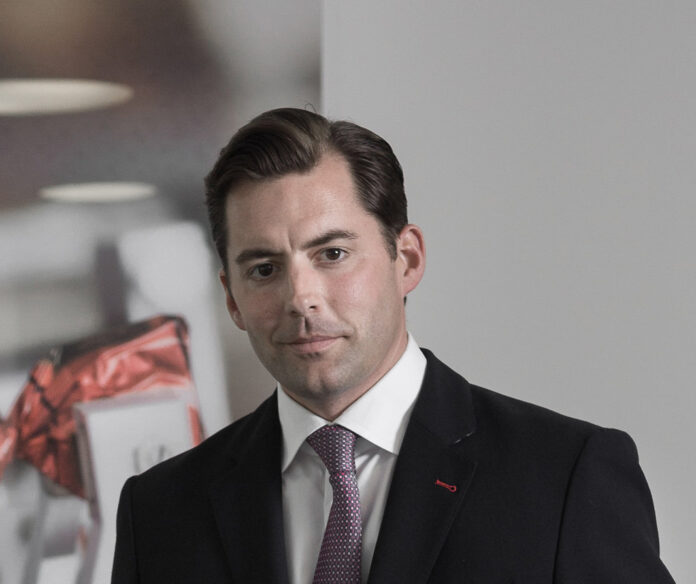
Markus Rustler, interpack President and Managing Partner of Theegarten-Pactec GmbH & Co. KG:
“We’ll be arriving in Düsseldorf with optimism and great expectations!”
interpack President and Theegarten-Pactec Managing Partner Markus Rustler talks about the current challenges facing the packaging industry, the “sustainability” and “digitalisation” megatrends and how these will be shaping the industry for years to come, as well as his expectations for the upcoming trade fair.
How do you assess the current state of affairs in the packaging industry?
More than two years of the pandemic and one year of Russia’s war of aggression on Ukraine have led to a reluctance to invest, at least in parts of the global packaging industry. There is some catching up to do on projects that have been put on hold. However, it is difficult to generalise about the entire packaging industry. Even during the pandemic and throughout the past year, a few niches in the packaging industry enjoyed very positive, stable development. These included the hygiene, medical and pharmaceutical sectors, which had more work than they could handle throughout the entire period. Other sectors – and I include us, the confectionery industry, among them – were somewhat more restrained.
What are your expectations for 2023, also with regard to Theegarten-Pactec?
In addition to significant upheavals like pandemic and the war in Ukraine, we are still looking at very troubled supply chains. And this very real problem is far from over in my view. I think that in 2023, unfortunately, we will all still be struggling – with the lack of availability of specific electronic parts! As far as raw material availability, energy prices and rising gas prices, I have the impression that the situation is easing a bit. But interrupted or disrupted supply chains, for example for special chips, are still a huge problem. Of course, this also impacts our industry. If you take a look behind the scenes in our assembly halls – at Theegarten-Pactec as well as at other companies – you’ll see that they’re full of machines that are 98 per cent complete. All that’s missing is a cable, a few safety switches, a few controls, a touch screen or a servo motor – which are simply not available on the world market. The consequences are disastrous: the machines are virtually completed, but they can’t be delivered and converted into turnover.
Are you expecting things to get back to normal in the short term?
No, I don’t see that happening any time soon. But no one can answer your question. We are in weekly contact with our key suppliers regarding the missing parts. They are all experiencing more or less the same problems. And I don’t just mean the food or confectionery industry or the mechanical engineering sector in the field of packaging – this is affecting mechanical engineering worldwide. You hear from the automotive industry that in individual cases new cars are being delivered with one key instead of two because of the chip shortage. Or just go to an electronics store and look at the currently available washing machines and dishwashers: Compared to four years ago, there isn’t much of a choice. No one can say, “Everything will be back to normal in June or July”.
Have you initiated contingency measures, for example, have you looked for additional suppliers to ensure resiliency?
As far as it is technically possible, of course we have. However, we are at a disadvantage in that our focus here at Theegarten-Pactec is on high-speed equipment. We have very high technical requirements and as a result the number of substitutes is limited. Last year, we started exploring a number of constructive solutions that we are in fact using today. Unfortunately, this isn’t a 100 per cent solution. And redesigning existing machines to compensate for the unavailability of parts can result in an enormous expense that is never reimbursed.
What trends and topics are you seeing in the industry that will accompany us over the coming years?
Well, for us at Theegarten-Pactec – and I believe this applies to the entire industry – the two megatrends at interpack and in the future are sustainability and digitalisation: more sustainable packaging materials and increased efficiency through digitalisation, to be precise. Other key topics are the circular economy, reducing material use and increasing recyclability through the use of mono-materials, which can be recycled better than common composites. Another exciting topic is the use of recyclates: If all manufacturers worldwide were to jump on this issue now, would we still have enough recyclate available? As good as these efforts may be: In the western world, it could work because we have relatively well-functioning recycling systems to recycle packaging material. But what about the really big markets like Asia, Africa or South America? Clearly, they’re a long way from a functioning circular economy to recycle material. From my point of view, it will take decades to get there. But we still have to start. And the sooner, the better.
How important is sustainability at Theegarten-Pactec?
Resource conservation, energy-efficient and CO2-neutral production are topics that have been high on our agenda at Theegarten-Pactec for a long time. In the recent past, we took giant steps in terms of sustainability: Since 1.1.2023, Theegarten-Pactec has been CO2-neutral as a company. At first, this led to amazement on the part of our customers, and then to very receptive ears. There is now a great deal of enthusiasm that we are taking these steps. When the ESG reporting obligation comes into force from 2025 and in the future even medium-sized companies will have to report in their annual financial statements on the sustainability strategy they are pursuing and how they have progressed with it, the entire industry will be affected. We have a clear roadmap for our sustainability journey are already collecting data to be prepared and to comply with the reporting obligation. However, the legal regulations and requirements were not the key factor for us: Sustainable and resource-saving management is an intrinsic motivation at Theegarten-Pactec and part of our corporate philosophy. We are well aware of our unique responsibility as a company towards future generations and we are acting accordingly.
How are things looking specifically with Theegarten-Pactec’s machines – can more be achieved in terms of sustainability and energy efficiency?
Our machines are already very energy-efficient, but I can definitely see further ecological potential. Although we are CO2-neutral as a company, the same doesn’t yet apply to the life cycle of our products. We use cast steel for the basic housing of many of our machines, which is very energy-intensive to produce and further process. But that, too, can of course be made CO2-neutral. This is one of the major next steps we will be taking. Our goal is to be able to tell our customers that when they order a machine from us, it will be CO2-neutral until it arrives at the factory gate and goes into production. I also believe that we haven’t yet reached the end of the line in terms of efficiency, speed or the footprint of the machines. In terms of energy consumption, our lines are already optimally designed, but there is certainly still marginal room for improvement here as well. For example, we can dispense with equipment that uses a lot of compressed air and find alternatives.
In view of the “no-waste” movement and the “last generation” protests, do you believe the packaging industry is still following the right business model when it comes to “sustainability”?
This is how I see it: Packaging protects products and therefore consumers. It protects products from damage, contamination and even ensures lower food loss and reduced waste of resources. Various studies estimate that 33 to 40 per cent of the food produced worldwide ends up directly in the rubbish. The truth probably lies somewhere in between. This waste is certainly partly due to the fact that the food doesn’t even reach the consumer because of inadequate cold chains, inadequate packaging and as a result, inadequate protection. To put it bluntly, we would have a much smaller hunger problem worldwide if we could reduce and avoid waste. I believe that there will always be packaging and that there will be more packaging rather than less. The decisive factor – and this is where the responsibility of the consumer, especially in the western world, is called for – is that we ultimately handle it with more care and that the packaging used is recycled in line with a circular economy. Moreover, the question of what actually constitutes sustainable packaging has not yet been clarified. Assessing the sustainability of packaging is very complex and needs to be considered over the entire life cycle. There is no such thing as one sustainable type of packaging.
This is true for primary packaging – but what about secondary packaging? Is there really still a need for an outer carton, or wouldn’t return systems with boxes in, say, three sizes be a better solution?
Technically, I can definitely imagine that. And there are start-ups out there that deal with precisely these kinds of issues. Finding models for a closed-loop system like Recup, where you can return the packaging elsewhere. A box system for secondary packaging – whether this is really more sustainable in the end? Since the boxes are to be used several times, they have to be made of robust materials. I’m thinking of hard plastic boxes or crates, for example. Whether they are more environmentally friendly than cardboard boxes is another matter. And how would this actually work when ordering online, e.g. from Amazon? How and where can I, as a consumer, return the box so that it remains in circulation? Is there a deposit on it? And what would that mean for the parcel delivery people? After all, such boxes are quite heavy. The weight would also have a considerable influence on an order’s CO2 footprint. All in all, I’m sure you’ll agree that this is a very complex challenge.
What solutions can we expect to see at interpack?
I believe – and we’ll be seeing this at interpack – that the approach will be more in the direction of new materials. For example, there is already packaging based on algae or organic cushions for transport made from fungal tissue as an alternative to petroleum-based products. I still see a lot of potential for development and investment here.
How is the development of such alternatives influencing Theegarten-Pactec?
We at Theegarten-Pactec see it like this: No matter what packaging material our customers want to use to pack their sweets, chocolate bars etc., we will develop the perfect technical solution for it. That’s our job and it’s the challenge we face.
Another hot topic at this year’s interpack is “digital technologies”. How far has digitalisation advanced in the industry and at Theegarten-Pactec?
Digitalisation isn’t something we have only recently become involved with. It has been around for a number of years. For example, we founded a start-up two years ago: Sweet Connect GmbH. Together with our partners Sollich, Chocotech, Oka and Winkler + Dünnebier, we created a digitalisation platform specifically for the confectionery industry. The platform offers customers the opportunity to digitally map the entire production process. Our goal is to provide our customers with a practical digital platform together with pooled resources – in a way that is better than from each manufacturer on its own. This approach has been extremely well received by our customers worldwide. At the moment, we are in discussions with other potential partners. Of course, at Theegarten-Pactec we also try to make each of our developments – not only new developments, but also existing machines – even more intelligent through digital options. It is becoming increasingly difficult for our customers to find qualified operators. So, the more the machine can help the operator do their job, the better. For example, we are working on concepts whereby the machine can indicate where errors are occurring, tell the operator exactly where it needs to be cleaned, where adjustments need to be made. You can find out more about this at our stand at the fair.
What are your expectations for interpack 2023?
The last interpack was held almost six years ago. An eternity in our industry. I assume that we will be seeing huge leaps in innovation – partly due to the lack of presentation opportunities in the meantime. And when I ask around among the exhibitors, everyone is in a very positive mood and is looking forward to a great trade fair, including us at Theegarten-Pactec, of course. We are an internationally active company – and that’s also what drives us and makes our business so exciting: Due to our high export share, we travel all around the world and come into contact with the most diverse cultures and people. When they all come together in such a beautiful place as Düsseldorf and we can inspire them with our products and ideally even close a deal, we are of course delighted. In any case, we will be arriving in Düsseldorf with optimism and great expectations.
Mail: pactec@theegarten-pactec.de, Web: www.theegarten-pactec.com
Media/ press contact:
Ruess International GmbH – Member of Ruess Group
Lindenspürstraße 22, 70176 Stuttgart, Germany
Tel. + 49 711 / 16446-63
Fax: + 49 711 / 16446-11
daniela.tscherbakova@ruess-group.com
